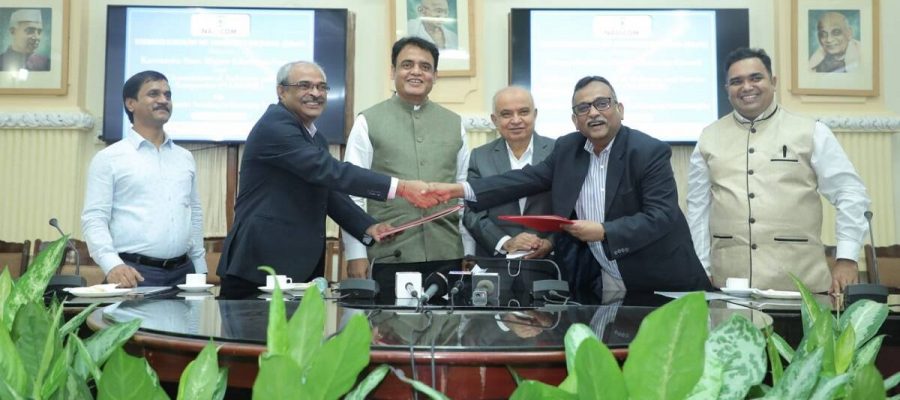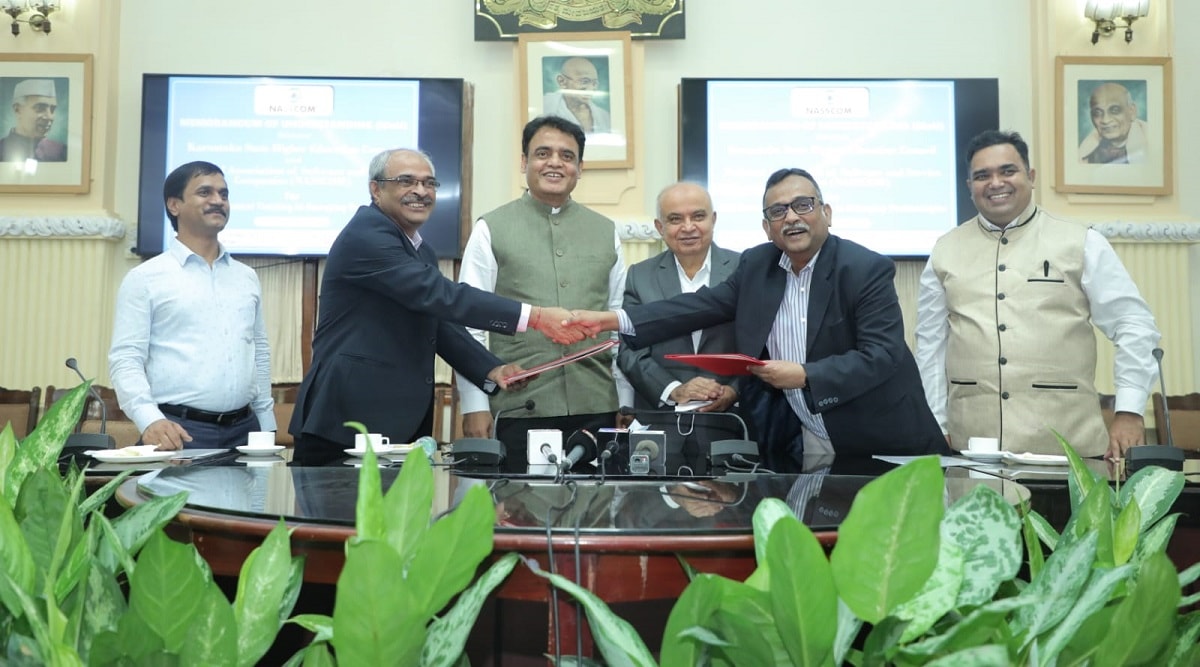Higher Education Minister C N Ashwathnarayan claimed that the partnership is expected to benefit more than 5 lakh students every year. The KSHEC has identified three courses — digital fluency, artificial intelligence, and cyber security — to be included in the curriculum.
To equip students pursuing higher education courses in Karnataka with industry-aligned skills, the state government Tuesday announced its official collaboration with the National Association of Software and Service Companies (NASSCOM).
After entering into a memorandum of understanding (MoU) with NASSCOM on behalf of the Karnataka State Higher Education Council (KSHEC), Higher Education Minister C N Ashwathnarayan claimed that the partnership is expected to benefit more than 5 lakh students (studying in government and private institutions) every year.
“This will make skill development courses available on the ‘Future Skills Prime’ platform of NASSCOM available to all students and faculty members of higher education institutions across the state. All universities have been covered in this MoU,” Ashwathnarayan explained.
The KSHEC has identified three courses — digital fluency, artificial intelligence, and cyber security — to be included in the curriculum, with these made available free of cost to non-computer science students and faculty members. “All these courses will have theory and practical components guaranteeing skill development among the learners,” Ashwathnarayan highlighted.
Digital fluency will be an introductory course for undergraduate (UG) first-year students focusing on technologies and their applications in day-to-day life. The artificial intelligence course for UG second-year students is designed by Microsoft and the cyber security course, also for UG second-year students, by CISCO. Both these courses are aligned with National Skills Qualifications Framework (NSQF) with the provision for certification by the respective companies.
Access to these courses will be offered from computers and gadgets like tablets and smartphones in a bid to ensure skill development align with standards, faculty training, and infrastructure resources, officials said.
Also the minister for IT & BT, science and technology, skill development, entrepreneurship and livelihood, Ashwathnarayan pointed out that various study reports predicted that the lack of digital talent would be a major challenge to the Indian IT services industry. “With the industry possessing a potential to touch $300-350 billion in revenues by 2025, such gaps should be closed as soon as possible. The demand for digital skills in India is eight times greater than what is available at present and is expected to rise 20 times by 2024,” he said.
Source: Read Full Article


